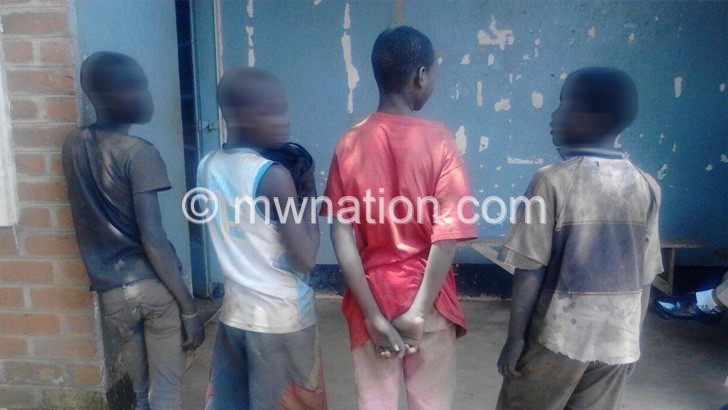Violence against children worsens in Malawi
Two out of three children in Malawi, some as young as one year old, are experiencing violence often by those entrusted to take care of them, a latest United Nations Children’s Fund (Unicef) report has established.
According to the report released yesterday in Lilongwe titled ‘A Familiar Face: Violence in the lives of children and adolescent,’ the Fund’s latest data paints a disturbing picture and establishes that local children are experiencing violence across all stages of childhood and in all places.
“The harm inflicted on children in Malawi is truly worrying. Very young and helpless children, from as early as one year old are being disciplined violently while adolescent girls and boys are forced into unwanted sexual acts.
“This is happening in both urban and rural areas with long term devastating impact on their social, physical and mental development,” reads part of the report signed by Unicef Malawi Representative Johannes Wedenig.
The United Nations (UN) child agency observes that at home, the majority of children are subjected to violent disciplinary acts by their parents and caregivers, adding that more than half of all one year olds are physically shaken, hit or slapped in the face, head or ear.
It adds that three-quarters of all children under the age of four experience psychological aggression and physical punishment by their caregivers.
“If such young and helpless children are not experiencing violence directly, they are living with a mother who is a victim of intimate partner violence. Over a third of children under the age of five are living with a mother who is a victim of intimate partner violence.
“The mother experienced physical, sexual or emotional violence committed by her husband or partner. Exposure to intimate partner violence has negative impacts on children’s well-being and mental development,” notes Wedenig.
The report also reveals that the most commonly reported form of sexual abuse in childhood is unwanted attempted sex.
In Malawi, according to Unicef, around 27 percent of adolescent girls aged between 15 to 19 years have experienced forced sexual intercourse or other forms of forced sexual acts in their lifetime mainly from known perpetrators such as friends, classmates and current or former partners or boyfriends.
“Sadly only 1 percent of these adolescent girls reached out for professional help. Boys on the other hand cited partners as the most common perpetrators of the sexual violence that they experience,” says the report.
However, reacting to the report findings, principal secretary (PS) in the Ministry of Gender, Children, Disability and Social Welfare, Esmie Kainja, said in an interview it is not government’s responsibility alone to stop violence against children and adolescents.
She said: “It is everyone’s responsibility. Parents and caretakers at home, teachers at school, religious and traditional leaders and care givers in different child related institutions; we are all responsible for ending violence against children.”
Unicef supports government’s efforts to improve services for children affected by various forms of violence besides developing policies and legislation that protect children through practical programs like community victim support units (CVSUs) and Police victim support units (VSUs), among others.
Recently the organisation also developed and rolled out a “safe schools” program, aimed at empowering school going children to reduce risks of violence and mobilising the community to keep children safe at school and on the way to school and at home.





